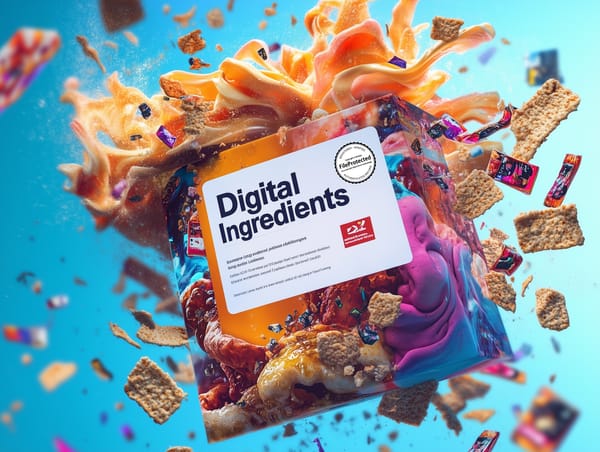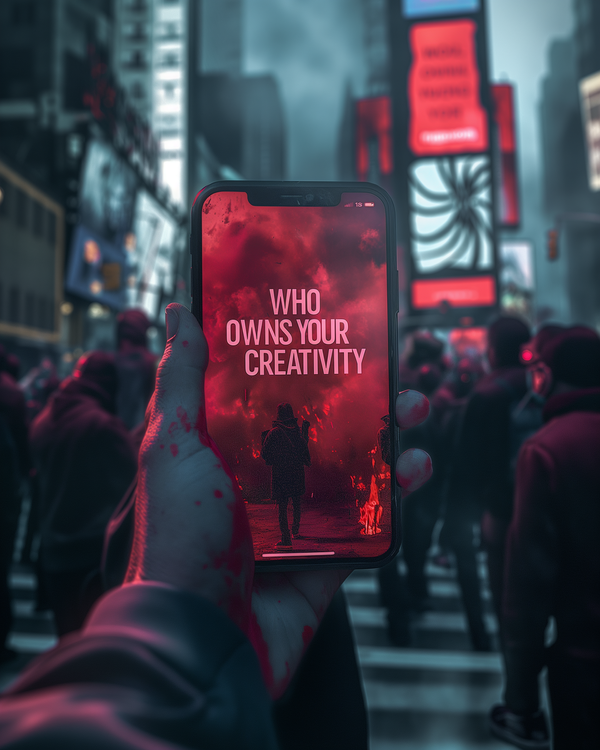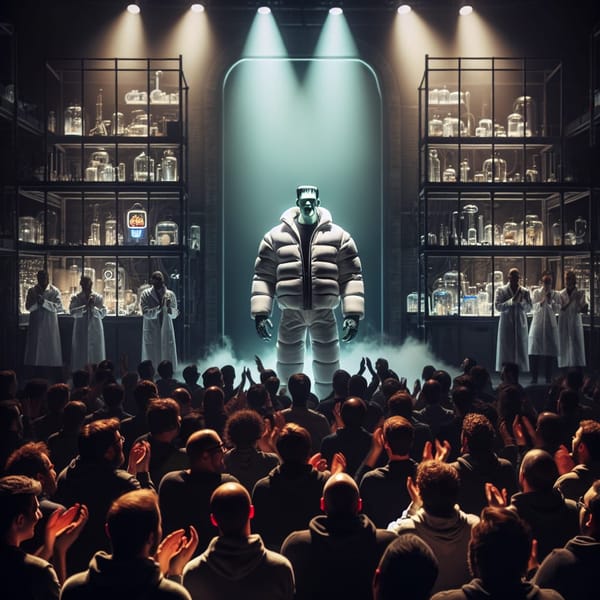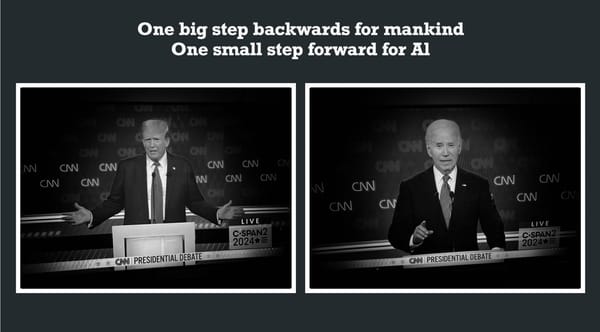The Copyright Illusion and the Hypocrisy in the Age of AI
As a photographer who has personally battled copyright infringement, I know firsthand that the system is broken. AI is forcing us to confront this reality and demand real solutions.
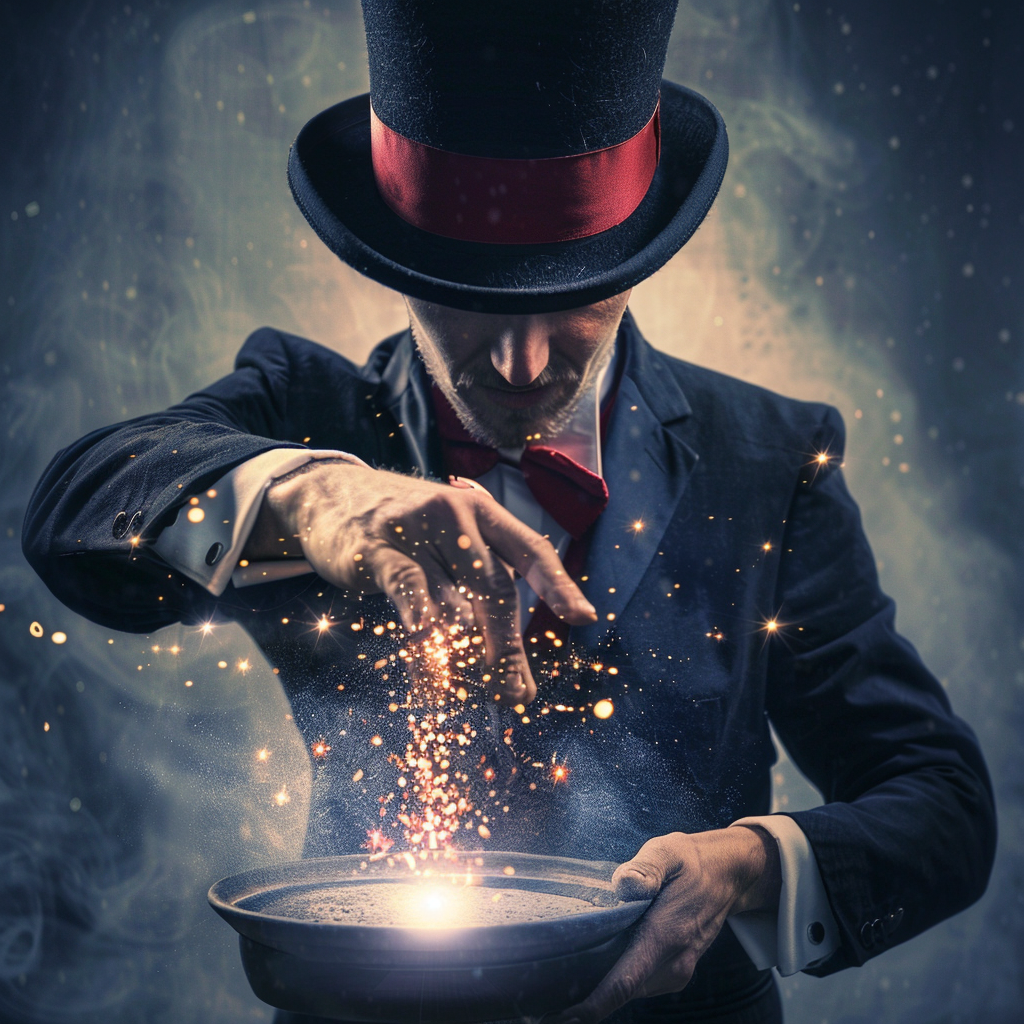
The Hypocrisy Behind the Sudden Concern for Artists
The advent of AI has triggered a copyright panic, with fearful cries of artistic theft and impending doom echoing through the halls of power. A legion of self-proclaimed art saviors—politicians, regulators, lawyers, tech giants—have emerged, promising to shield artists from the clutches of AI-powered theft and to protect the future of art and artists. Ethical and moral issues are suddenly at the forefront of every conversation. But let's not be fooled by this sudden concern. The real issue is a broken copyright system that's failed artists for decades. Where were these guardians of creativity and artists' rights when artists, armed with their registered copyrights, struggled to defend their work from infringement in "pay to play" federal courts long before AI? Where was the outrage when stock agencies consolidated and introduced exploitative "all you can eat" pricing models that undercut creators? This sudden concern raises the question: is it authentic or driven by fear of disruption to existing business models and power structures?
The emergence of AI has provided many familiar players in the current AI race with a new opportunity to shape the narrative. By positioning themselves as concerned defenders of artists' rights, they can advocate for regulations and policies that often align with their own agendas and financial interests. This sudden outpouring of goodwill, offers of profit participation, and concern for artists raises a crucial question: Is it genuine, or is it because the Gen AI business model—which relies heavily on ethically sourced and legally sound creative content— now depends on creators assigning their rights to GenAI platforms that operate like stock agencies?
Harvard Law Expert Exposes the Hypocrisy
In a recent article for Harvard Law Today, Mason Kortz, a Harvard Law expert, highlights this hypocrisy. Discussing the NYT vs. OpenAI lawsuit, Kortz points out the irony of companies expressing concern for artists while failing to compensate their own creators adequately. When asked about balancing compensation for content creators with technological development, he remarked, "Companies worried about AI aren't always properly compensating their own content creators. For example, record labels claiming AI will destroy music pay their artists only five cents on the dollar."
Kortz concludes, "There’s a high potential for individual writers, artists, and actors to suffer. But I don’t think the big companies opposing AI developers always have the little guys’ interests in mind."
https://hls.harvard.edu/today/does-chatgpt-violate-new-york-times-copyrights/
A Personal Tale of Copyright Theft
As a music photographer (andyrosenphotos.com), capturing iconic moments in punk rock history. My images of the likes of The Clash, The Jam, Johnny Rotten, and Siouxsie have been exhibited, published and sold to collectors worldwide. Over the years, I've faced my share of infringement and experienced the frustration of a legal system stacked against me. Recently, I discovered one of my rare photos of Joe Strummer being used without permission on a merchandise website. It's disheartening to see my work exploited on everything from t-shirts, mugs and even puzzles with little recourse against a company operating with blatant disregard for copyright law. Their servers are scattered globally, making prosecution difficult without deep pockets. These types of companies and their illegal operations are well known, yet they continue to exploit artists with impunity– nobody seems to care these days unless the perpetrator is a machine.
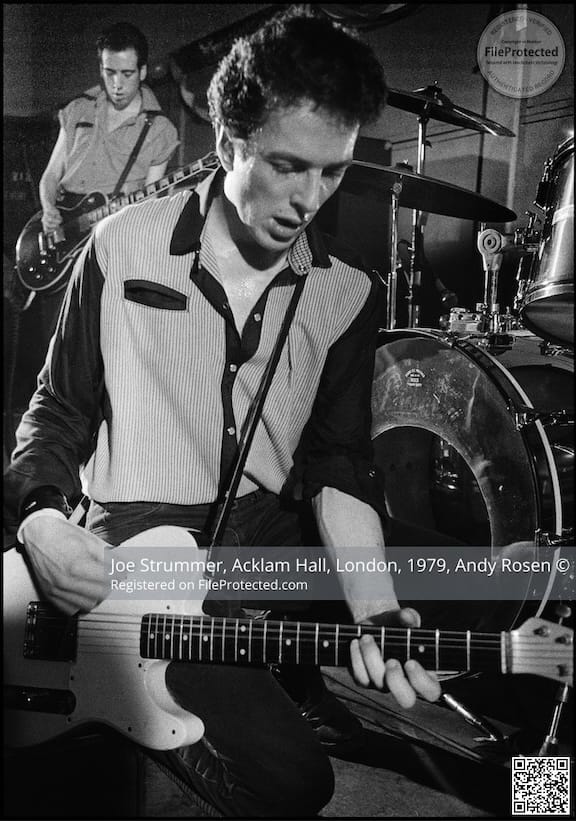
Copyright's Empty Promise for Independent Creators
My recent experience with copyright infringement underscores a fundamental flaw in the system: it simply doesn't work for many creators. We live in a world obsessed with digital legalities—GDPR guards our privacy, DMCA takedown notices police online content, and lawsuits erupt daily over AI-generated art. Yet, when it comes to protecting independent artists from blatant theft, the legal system remains cumbersome, inaccessible, and cost-prohibitive.
The current litigation-centric model for enforcing copyright, coupled with the complexities of the fair use doctrine, effectively denies access to legal protection for those who cannot bear the substantial costs of federal court. This creates an unjust disparity: copyright holders with ample resources can readily assert their rights, while those with limited means are left defenseless, despite the law theoretically applying equally. This imbalance undermines the intended fairness of copyright law and the fair use doctrine, leaving many creators without adequate protection for their hard work and creativity.
A Call for Real Solutions
If we truly care about artists' rights, we need real solutions, not more obstacles. Ultimately, while the copyright system aims to incentivize creativity by granting exclusive rights, the high costs of enforcement undermine this goal for many independent artists. Continuing to explore ways to make the system more accessible while preserving fair use and First Amendment considerations should be a priority. Striking this balance is crucial to upholding copyright's constitutional purpose of promoting artistic progress.
-
Rethinking Registration: The U.S. copyright system's mandate for formal registration to obtain full legal remedies is an antiquated and unfair burden, especially for independent creators, in a landscape where creativity flourishes online and AI generates billions of works annually. If registration remains a necessity, it should be streamlined, transparent, and affordable, not a costly legal labyrinth that only benefits those with deep pockets. Every copyrighted work, regardless of its creator or origin, should inherently qualify for legal protection and statutory rights.
-
Affordable Legal Recourse: While the Copyright Claims Board (CCB) is a step in the right direction, its limitations highlight the need for further reform. The high dismissal rate, opt-in nature, and relatively low damages cap of $30,000, even for smaller claims, mean it falls short of providing truly accessible recourse for many independent artists. Dedicated small claims courts, mediation services, or online dispute resolution platforms could offer creators more effective and affordable options to enforce their rights.
-
Fair Compensation Models: The rise of AI adds a new layer of complexity to the issue of fair compensation for creators. Whether a work is created by a human or in collaboration with AI, clear guidelines and frameworks are needed to ensure that creators receive proper compensation when their works are used. While standardized licensing, royalties, and usage fees could offer a starting point, the rapid evolution of AI technologies necessitates a more flexible and adaptable approach. These frameworks must be adaptable and responsive to the rapid pace of technological change in the AI landscape.
-
Transparency and Accountability: Improving transparency around rights ownership, usage permissions, and attribution is a crucial step towards better copyright protection. Enhanced registration systems and standardized metadata could significantly improve the tracking and enforcement of copyrights. However, a balance must be struck between transparency and privacy. Mandating full transparency for all creative works, potentially including sensitive AI training data, may be impractical and raise legitimate privacy concerns.A nuanced approach that balances these competing interests is essential.
-
AI Orphaned by Innovation: The surge in AI-generated content has also highlighted the growing issue of "orphan works" – creative outputs without clear ownership. This often occurs because existing copyright laws struggle to accommodate AI's role in creation. This gap leaves countless AI-produced works in limbo, challenging our traditional understanding of copyright, ownership, and value in digital art. Creators struggle to claim ownership, monetize, or protect their work, facing legal and ethical hurdles in distributing and safeguarding their creations. To address this, it's essential that legal frameworks adapt to recognize all forms of digital creation, including AI-assisted works. Ensuring registration, traceable origins, and verifiable authenticity are crucial steps. Without such adaptations, the potential of AI-generated works remains untapped, mired in a complex web of legal challenges and ethical dilemmas concerning their distribution and use. As we stand at a crossroads in digital content creation, the imperative for legal systems to acknowledge and protect AI-assisted works becomes clear.
Ultimately, the copyright system's high costs of enforcement undermine its intended purpose of incentivizing creativity for many independent artists. To truly fulfill its constitutional mandate of promoting artistic progress, the system must evolve. We must prioritize exploring solutions that make copyright protection more accessible and affordable for all creators, while still safeguarding fair use and First Amendment principles. Striking this delicate balance is essential for a thriving and equitable creative ecosystem.
A New Battlefield in an Old War
The struggle for copyright protection isn't new; it's merely evolved. Copyright's shortcomings long predate the current AI debate, but the advent of AI art generation has exposed these flaws with glaring clarity. The current system is ill-equipped to handle AI-created content's sheer volume and unique nature. This leads to a loss of control for many artists and allows corporations and intermediaries to reap disproportionate rewards from their work.
The fundamental issues currently being raised by AI's creative capabilities have long plagued the copyright system. However, AI's emergence, while disruptive, may be the catalyst needed to finally address these systemic flaws. This historical imbalance underscores the need for radical change, not mere tinkering. Attempting to shoehorn AI into a framework designed for the printing press era is like trying to fix a Tesla engine with a rusty wrench. The sheer scale of AI-generated content – 15 billion images created last year alone, surpassing 150 years of photography – is a stark reminder that a piecemeal approach won't suffice, and time is of the essence.
Reclaiming Control: A Message to Creators
The tables have turned, and the power is now in the hands of the creators. Don't rush to license your work for AI datasets until a clear and equitable profit participation structure is presented—which, to date, remains elusive. While some companies promise a "Spotify-like" model for sharing profits, this comparison falls flat considering the widespread complaints from artists about the platform's inadequate compensation. AI is still evolving, and its business models remain murky. Without a transparent path to profit by licensing your work to these new AI stock agencies, caution is advised.
Embracing Man + Machine
The AI revolution is here, and it's not going away. Rather than fighting against it, we must embrace the potential for collaboration and symbiosis between human and machine creativity. A reformed copyright system that recognizes and respects the contributions of both, ensuring that all creative work – whether human or AI-generated – is registered, clearly attributed, and verifiable, is not only possible but essential for a vibrant and equitable creative future.
Disclosure
In the spirit of full disclosure, I am a co-founder of FileProtected.com, a platform that leverages blockchain technology to safeguard creative intellectual property and empower creators in the digital age. We provide tools for registering, authenticating, and monetizing all forms of creative work, including AI-generated content. Our Creative ID system acts as a "digital passport" for digital content, anchoring copyright, ownership, attribution, sales history, and other critical information to the files themselves. This ensures the creator is always represented, and the work is verified, trusted, and available for sale wherever it travels.
If you are interested in learning more, check out FileProtected.com.
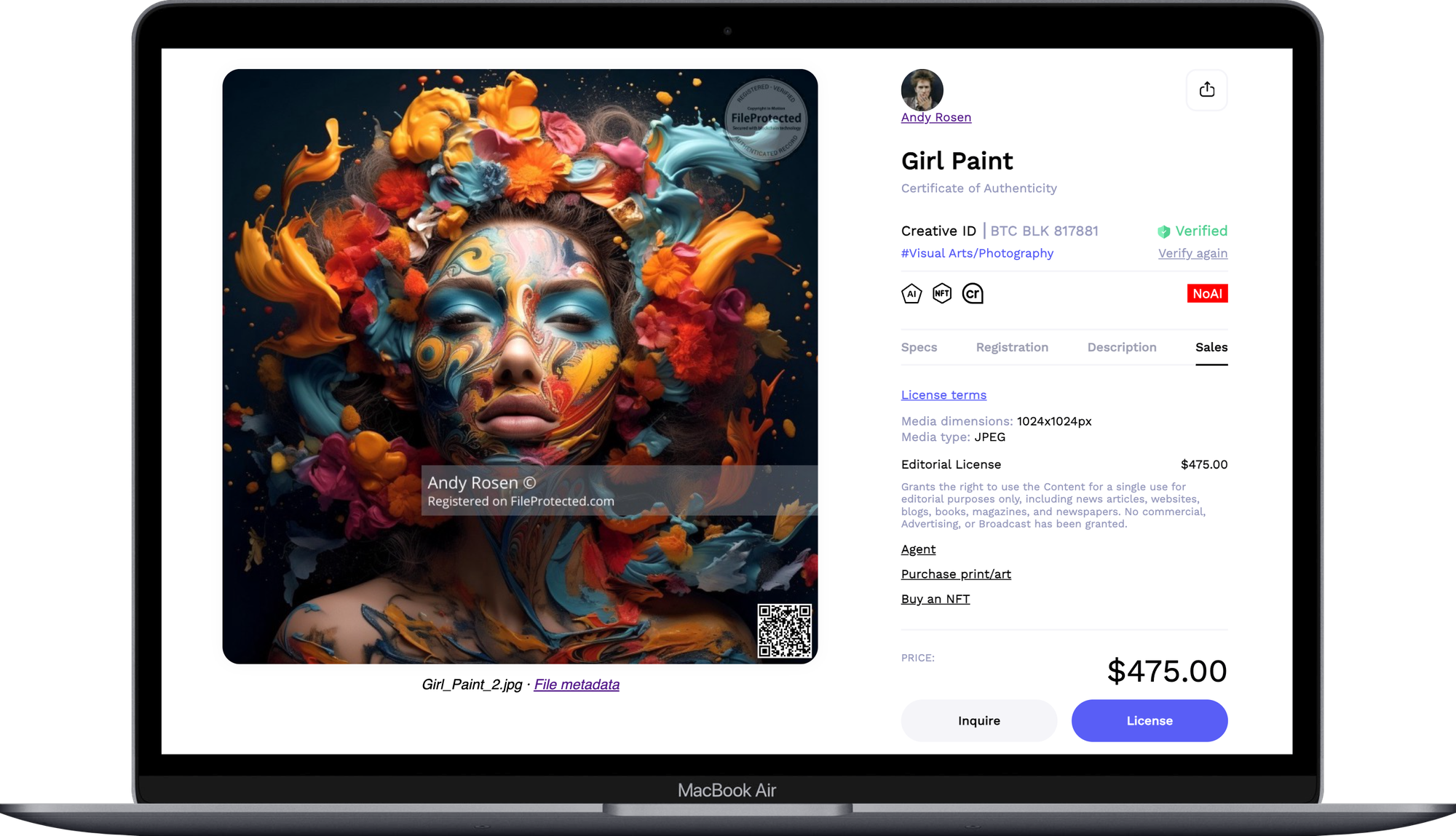
Register and protect your Instagram work for free
Don't miss out on the future of creative protection. Secure your creative future with FileProtected today! Sign up for a FREE early access account and be among the first to experience our platform, enjoy free registrations, and unlock exclusive discounts and privileges once we officially launch.
Guard Your Creativity, Monetize Your Passion


